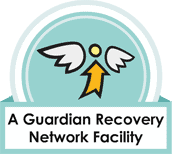Medical Assisted
Xanax Detoxification
If you or someone close to you has been struggling with a Xanax use disorder of any severity, CuraWest is available to help. Our Denver, Colorado treatment center provides clients with an effective continuum of clinical care, beginning with medical detox and progressing to residential treatment. Because the symptoms associated with benzodiazepine withdrawal can be severe when left untreated, medical detox always comes as a recommended first step on the road to recovery. To learn more about the treatment services we provide or to begin your own personal journey of Xanax addiction recovery, contact us today.
Xanax is the brand name for the generic medication alprazolam, a prescription drug most frequently used in the treatment of anxiety-related disorders. Xanax is a benzodiazepine, meaning it is a prescription sedative. This specific drug works by binding itself to GABA (gamma-aminobutyric acid) neurotransmitters within the brain. Not only does GABA regulate anxiety, but it contributes to vision, motor control and numerous other essential cortical functions. When an individual ingests Xanax, the levels of this inhibitory neurotransmitter increase, and the individual will begin to feel calm and relaxed within 15 to 30 minutes. Some other examples of anti-anxiety benzodiazepines include Valium and Klonopin. However, Xanax remains the most frequently prescribed.
All benzodiazepines have a high risk of misuse seeing as they are both potent and habit-forming. Because of this, Xanax will generally be prescribed short-term and in moderation. Individuals who take this drug will not take it regularly; in most cases, prescribing physicians will suggest the drug is only taken when absolutely necessary like at the onset of a panic attack. Still, Xanax is one of the most frequently prescribed medications throughout the country. The National Institute on Drug Abuse reported that between the years 1996 and 2013, the number of American adults who filled a prescription for benzodiazepines rose over 67 percent – from 8.1 million adults to somewhere over 13.5 million. Unfortunately, many mistakenly believe that because the medication was originally prescribed by a medical professional it does not pose the same threat as illicit substances – this could not be farther from the truth. Not only is Xanax physically and psychologically damaging when misused, but abusing this highly addictive medication for any length of time can lead to serious and long-term interpersonal and health-related complications.
Xanax Abuse & Addiction
The Substance Abuse and Mental Health Services Administration reported that during the year 2016, there were over 18.4 million Xanax prescriptions written in the United States. Of course, there are many individuals who take the drug as prescribed, and who have never abused the medication or developed a substance dependence disorder. The same report concluded that roughly 4.3 million American adults with a Xanax prescription eventually ended up misusing the medication, and that a large number of those men and women went on to develop a significant Xanax abuse disorder. When it comes to Xanax abuse and addiction, there are several signs and symptoms to look for. These generally include:
- Using the medication other than as prescribed or using the medication if it was never prescribed. Many individuals who begin abusing benzodiazepines like Xanax will initially get the drug from a friend or family member – not a prescribing physician.
- An inability to control intake. Those with addictive disorders often try to quit or cut back with little to no success, or repeatedly promise their loved ones that they will seek professional help with no intention of actually doing so.
- Continuing to use Xanax even though it is resulting in severe interpersonal consequences. These consequences might include problems within relationships, issues at work or at school, financial issues and legal issues.
We Are Here For You
Let Us Help You Heal
Our Xanax detoxification experience is second to none.
Learn how we can help by speaking with one of our Treatment Advisors today.
- An increased tolerance, meaning that more Xanax is required in order to produce the same desired effects. Withdrawal symptoms range from physically uncomfortable to dangerous and life-threatening. For this reason, medical detox will always be a necessary first step when it comes to Xanax addiction recovery.
- Withdrawal symptoms upon ceased use. Withdrawal symptoms will range in severity based on the length of the substance abuse disorder and the amount of Xanax being used. Xanax withdrawal can be dangerous, and should always be monitored by a team of experienced professionals in a medical detox setting.
- Allowing personal commitments to fall through regularly – prioritizing Xanax use over all existing obligations. This might look like failing to show up for work, spending less time with friends or dropping out of extracurricular activities.
- Empty pill bottles and “doctor shopping.” If an individual is suffering at the hands of a Xanax addiction, he or she will likely attempt to obtain more of the medication by visiting more than one medical doctor and attempting to get more than one prescription at a time.
- Becoming defensive, angry or irritable when confronted by friends or family members. Those suffering from a Xanax addiction will typically go to great lengths to hide their use from their loved ones.
One of the most obvious signs of Xanax abuse or addiction is withdrawal – as previously mentioned, the symptoms associated with Xanax withdrawal will always need to be closely monitored in a medical detox facility, such as CuraWest.
Xanax Withdrawal Signs & Symptoms
When it comes to Xanax withdrawal, there are many physical and psychological signs to keep an eye out for. Not everyone who abuses Xanax will experience all of the withdrawal symptoms, but they will undoubtedly experience some.
Our Xanax Detox Services Include
Physical symptoms of Xanax detox include:
- Hand tremors.
- Muscle spasms and uncontrollable twitching.
- Profuse sweating.
- Dramatically increased heart rate.
- Increased blood pressure.
- Stomach issues, like nausea, vomiting and dry heaving.
- Intense headaches.
- Pain and cramping in the muscles.
- Weight loss, attributed to a loss of appetite.
Psychological symptoms of Xanax withdrawal include:
- Depression and suicidal ideation/thoughts of self-harm.
- Extreme confusion, which can lead to agitation and hostility.
- Anxiety, panic attacks and racing thoughts.
- Significant mood swings and an inability to regulate emotions.
- Hallucinations and delirium.
- Restlessness.
Ready To Begin Your Xanax Detox?
We Offer A Safe & Effective Program
Don’t let Xanax addiction control your life.
Call us today and let’s get you started on the path to a better you.
Why Xanax Detox is Necessary
Benzodiazepine withdrawal of all severities can lead to serious health-related complications. For this reason, medical detox will always be a necessary first step on the road to long-term Xanax addiction recovery. The biggest physical risk associated with unmanaged Xanax withdrawal is seizures – it is not uncommon for an individual who has been abusing this medication for any extended period of time to undergo one or several seizures during the withdrawal process. In a medical detox setting, physicians will help individuals slowly taper off of Xanax in order to prevent these dangerous withdrawal symptoms from occurring. Tapering will allow the body to slowly adjust to smaller amounts of the substance – quitting cold turkey can be life-threatening, and should never be attempted.
The Xanax Detox Experience
In a medical detox setting, there are several viable treatment options for safe and effective Xanax detoxification. As mentioned previously, tapering off of the drug slowly is always a viable option. One of our medical professionals may also prescribe a longer-acting benzodiazepine (Xanax is a fast-acting benzodiazepine), which can help alleviate the more intense physical and psychological symptoms of withdrawal. Inpatient detox is necessary when it comes to benzodiazepine withdrawal. If effectively and professionally treated, symptoms of withdrawal will generally subside within one to two weeks. Of course, the length of the process will vary on a person-to-person basis. Once a client has been deemed medically stabilized, they will transition to the next appropriate level of care. In the vast majority of cases, this will be residential/inpatient addiction treatment — a level of care also provided by CuraWest.
Begin Healing Now!
Have A Call With One Of Our Treatment Advisors
Don’t Suffer Any Longer
If you or a loved one has been suffering at the hands of a serious Xanax addiction and has had a difficult time quitting without professional help, we are available. To learn more about our medical detox and inpatient addiction treatment program, contact us at (888) 693-1794 and speak with one of our Treatment Advisors.


















